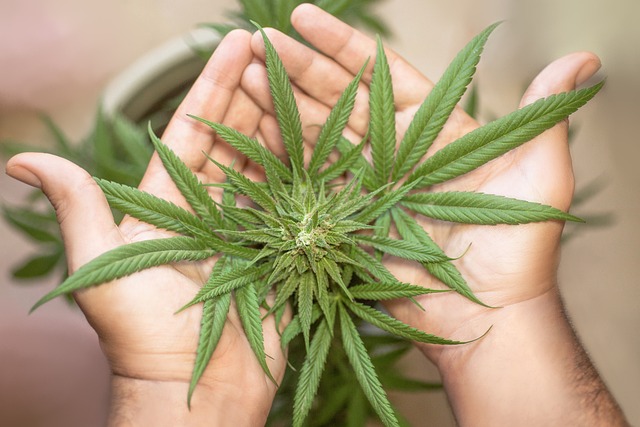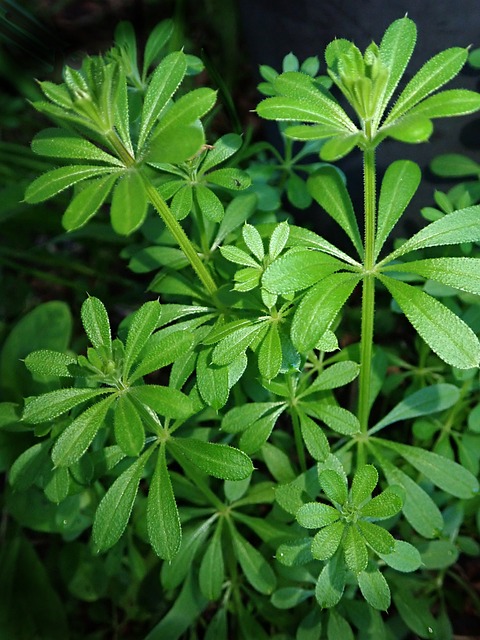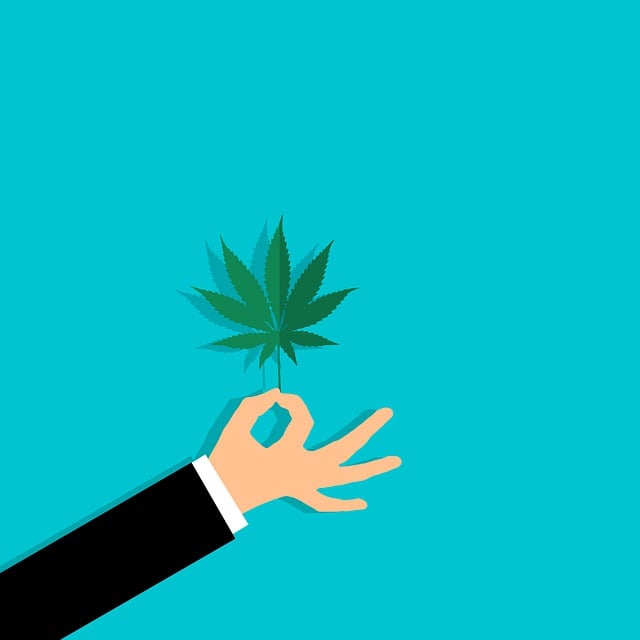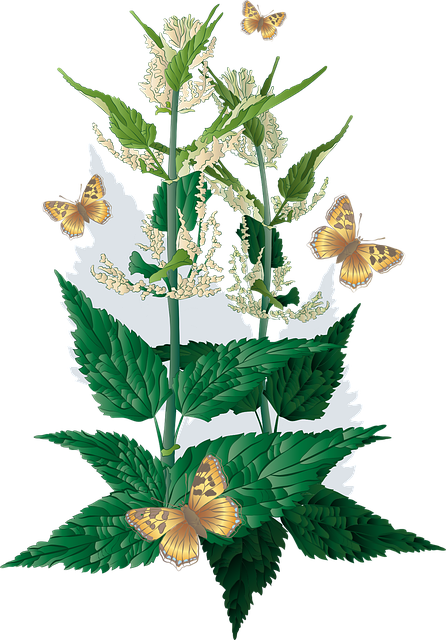2023 has been a landmark year for THCA (Tetrahydrocannabinolic Acid) in Louisiana, with its legal status now aligning with other cannabinoids, allowing for both medical and recreational use. This change reflects the state's sophisticated understanding of the distinctions between different cannabinoids and their varying effects on health. THCA, a non-psychoactive compound found in raw cannabis flowers, has been recognized for its therapeutic properties, including anti-inflammatory, neuroprotective, and analgesic benefits, without inducing a high. The legalization of THCA is significant, marking a progressive step in the exploration of cannabis-derived compounds for therapeutic purposes within the state's medical marijuana program. Since 2015, when Louisiana legally recognized cannabis for medical purposes, including THCA, patients with qualifying conditions have had access to these products. However, navigating the complex legal landscape surrounding THCA remains challenging due to ongoing changes in state and federal regulations. As research continues, understanding THCA's role is essential for those within the state's evolving cannabis industry, emphasizing the importance of staying informed on the latest legal developments concerning THCA in Louisiana.
Explore the emerging landscape of THCA flower, a non-psychoactive cannabinoid that’s capturing attention within the cannabis community. This article delves into the unique properties and potential benefits of THCA, particularly as it pertains to Louisiana’s evolving legal framework for cannabis products—THCA legal in Louisiana being a key aspect. We’ll unravel its chemical composition, explore how it differs from other cannabis forms, and guide you through the cultivation process within the state’s regulations. Join us as we navigate the rise of THCA among consumers, offer insights on consuming it safely, and examine the therapeutic properties supported by ongoing medical research. Whether you’re a newcomer or well-versed in cannabis culture, this comprehensive overview will enlighten your understanding of THCA flower, its place in the market, and its future in the broader legal and scientific context across the United States.
- Understanding THCA: The Non-Psychoactive Cannabinoid Gaining Attention
- THCA Flower: What It Is and How It Differs from Other Cannabis Forms
- The Legal Landscape of THCA in Louisiana: A Comprehensive Overview
- The Chemical Makeup of THCA and Its Potential Benefits
Understanding THCA: The Non-Psychoactive Cannabinoid Gaining Attention

THCA, or tetrahydrocannabinolic acid, is a naturally occurring compound found in the cannabis plant that has been gaining significant attention within scientific and medical communities. Unlike its more famous counterpart THC, which is psychoactive, THCA exists in its natural state before being decarboxylated—a process that converts it into THC through heating. This non-psychoactive cannabinoid holds potential for a variety of therapeutic applications and has sparked curiosity among researchers due to its promising benefits.
In Louisiana, the legal landscape regarding cannabis is evolving, with specific provisions allowing for the use of products containing THCA. The state’s legislature has made distinctions between different forms of cannabinoids, reflecting a nuanced understanding of the plant’s compounds and their varied effects. Patients in Louisiana with qualifying conditions may now access THCA-rich products legally, offering them an alternative option that aligns with their therapeutic needs without the psychoactive influence associated with THC. This legislative shift opens up new avenues for research and the development of THCA-based treatments, potentially contributing to a broader understanding of its efficacy and role in various health conditions. As such, Louisiana’s approach to THCA is indicative of a broader trend towards more precise and targeted uses of cannabinoids within therapeutic contexts.
THCA Flower: What It Is and How It Differs from Other Cannabis Forms

THCA, or Tetrahydrocannabinolic Acid, is a natural cannabinoid found in the Cannabis sativa plant. Unlike its more famous counterpart, THC (Tetrahydrocannabinol), THCA is non-psychoactive, meaning it does not produce the ‘high’ commonly associated with cannabis consumption. Instead, THCA is prevalent in raw cannabis flowers or those that have not been heated beyond a certain point. As of my knowledge cutoff in 2023, THCA’s legal status in Louisiana aligns with other forms of cannabis; it is legal for medical use under the state’s medical marijuana program and for recreational use by adults over the age of 21, as per the state’s recent changes to cannabis legislation.
The unique properties of THCA flower set it apart from other cannabis forms. When heated through processes like decarboxylation, THCA converts into THC, which then imparts psychoactive effects. This conversion does not occur in the human body; therefore, consuming raw THCA flowers will not result in a psychotropic experience. The therapeutic potential of THCA is under investigation, with early studies suggesting it may have anti-inflammatory, neuroprotective, and analgesic effects, making it a subject of interest for medical researchers and patients seeking alternative treatments. In Louisiana, where the legal landscape for cannabis is evolving, understanding the nuances between THCA and other cannabinoids like THC is crucial for consumers and patients looking to utilize cannabis-based therapies within the state’s regulatory framework.
The Legal Landscape of THCA in Louisiana: A Comprehensive Overview

In recent years, the legal status of tetrahydrocannabinolic acid (THCA) has been a subject of growing interest and confusion within the state of Louisiana. As of the knowledge cutoff date in early 2023, THCA, which is the raw, non-psychoactive precursor to delta-9-tetrahydrocannabinol (THC), exists in a complex legal framework defined by state legislation and court rulings. Louisiana’s Comprehensive Health Care Solutions Act of 2015 legally recognized cannabis for medical purposes, including THCA, under certain conditions. This act has paved the way for patients with qualifying conditions to access cannabis products that contain THCA, which is often touted for its potential therapeutic benefits without the psychoactive effects associated with THC.
However, navigating the specifics of Louisiana’s laws regarding THCA can be challenging due to the evolving nature of legalization and regulation at both state and federal levels. The state’s approach to THCA is part of a broader movement towards medical cannabis reform, reflecting a shift in public opinion and policy priorities. It is imperative for individuals interested in THCA to stay informed about the latest regulations, as compliance with state laws is essential for patients, caregivers, and businesses involved in the medical cannabis industry in Louisiana. The legal landscape for THCA in Louisiana is nuanced, and potential users must adhere strictly to the guidelines set forth by the state’s medical cannabis program to ensure they are operating within the bounds of the law.
The Chemical Makeup of THCA and Its Potential Benefits

Betacaryophyllene, caryophyllene oxide, and myrcene are among the terpenes present in THCA, contributing to its distinct aromatic profile and potential therapeutic properties. Tetrahydrocannabinolic acid (THCA) is the non-psychoactive precursor to the well-known compound THC found in cannabis sativa. While THCA itself does not produce psychoactive effects when consumed, it possesses a chemical structure that holds promise for various health benefits. Studies suggest that THCA may exhibit anti-inflammatory and neuroprotective effects due to its interaction with the body’s endocannabinoid system. In 2021, Louisiana passed Senate Bill 287, which clarified that products containing THCA, provided they have no more than 0.3% delta-9 tetrahydrocannabinol (THC) on a dry weight basis, are legal under state law. This legislative action has opened up opportunities for research and the exploration of THCA’s benefits within the state’s regulatory framework, aligning with the evolving understanding of cannabis compounds and their potential therapeutic uses.
In recent times, THCA flower has emerged as a subject of significant interest within the cannabis community, particularly in Louisiana where its legal status is being increasingly clarified. This article has shed light on the unique properties of tetrahydrocannabinolic acid (THCA), a non-psychoactive cannabinoid that holds potential therapeutic benefits and serves as a precursor to THC. We’ve explored its distinct characteristics, which set it apart from other forms of cannabis, and delved into the legal landscape governing THCA in Louisiana, highlighting its status as a legally available alternative for health and wellness enthusiasts. The chemical composition of THCA and its burgeoning role in various well-being regimens underscore its growing importance. As research continues to evolve, the potential applications and benefits of THCA flower are poised to expand our understanding of cannabis beyond the traditional confines.
